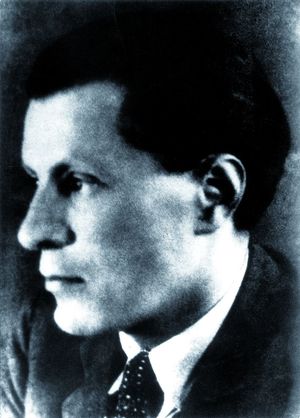Drogobych. Bruno Schulz writes a letter to Tadeusz Breza.
The first part of Schulz’s letter to Tadeusz Breza, a prose writer and editor of Kurier Poranny,* has a clearly essayistic and, at the same time, very intimate tone. Schulz begins with the famous passage (repeatedly cited in the future): “I need a companion. I need the proximity of a kindred spirit. I want some kind of guarantee of the inner world whose existence I propound. To hold it only on my own faith and to carry it against all odds with the strength of my defiance is the difficulty and torment of Atlas”. “Only in the encounter with another man,” says Schulz, “can the creative individual see his reflection and find the confirmation (and completeness) of his visionary abilities”. “The world, as if waiting for this company, so far closed, tight, without further plans – begins to mature with the colors of the distance, to crack and open up into its depths”.
Referring to the previous (missing) letter, in which Breza confessed to the nagging shortage of time, Schulz perversely praises his predicament: “Sir, you must be full of unofficial incidents, unrecorded activities that eat up the time right in front of your eyes, before that officiality of yours decides, after many ceremonies, to taste it”. This passage follows the general apology of human weaknesses, which, according to Schulz, above all, allow people to make friends: “Without vice, they would be private and in need of nothing”.
At the end of the letter, Schulz invites Breza to Drogobych*. He wants to show him around the town of his childhood and look at it again – this time with Breza’s eyes. (jo)
See also: 13 November 1934, 12 December 1934*, 16 August 1937*.


